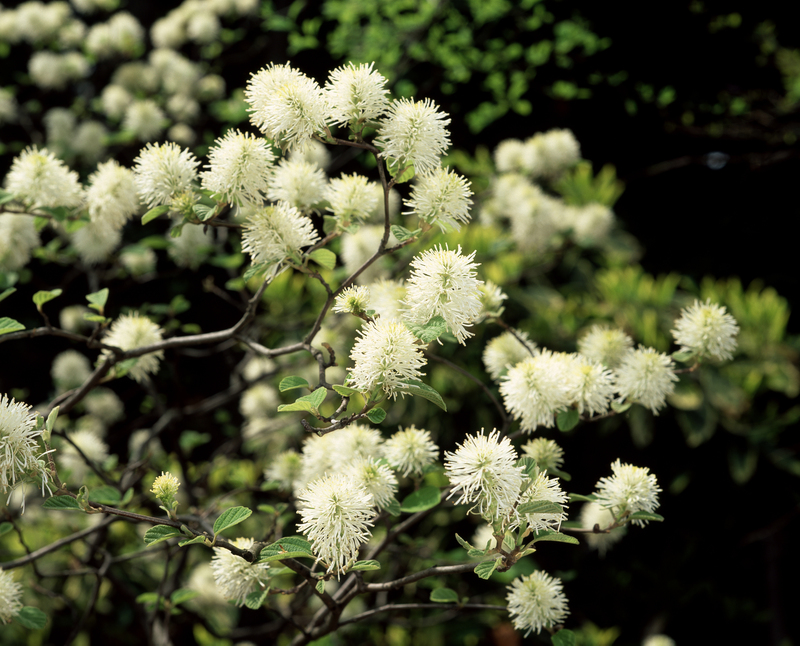Uphold Your Garden's Integrity During Winter
Posted on 22/06/2025
Uphold Your Garden's Integrity During Winter: Comprehensive Guide
Winter can be challenging for gardeners who wish to preserve the integrity of their outdoor spaces. Frost, snow, and biting winds threaten your plants, soils, and hardscape elements, but with the right knowledge and proactive measures, it's entirely possible to protect and sustain your garden through the coldest months. Understanding how to maintain your garden's structural and biological health is essential for a flourishing landscape come spring.

Why Winter Garden Protection Matters
Winter brings a unique set of challenges: soil compaction, frozen roots, drying winds, and dormant pests. If neglected, your garden may suffer significant setbacks, losing plants and structure built over seasons. By upholding your garden's integrity in winter, you ensure:
- Minimal plant loss due to cold or frost damage
- Healthier soil through proper moisture and nutrient retention
- Protection of investment in perennials and expensive landscaping
- Readiness for spring with stronger, more vigorous growth
Assess and Plan: The First Step in Maintaining Garden Integrity
The foundation for safeguarding your garden in winter begins with a thorough assessment. Every garden is different--consider your plant varieties, local climate, garden design, and soil conditions.
- Identify hardiness zones for your location
- Assess which plants are most vulnerable
- Determine areas where snow and ice accumulate
- Take stock of your winter gardening supplies
With these preparations, you can tailor your strategy to preserve the structure and vitality of your garden, avoiding unnecessary losses.
Essential Tips to Uphold Garden Integrity During Winter
1. Mulch: Your Garden's First Line of Defense
Applying a thick layer of mulch in late fall is one of the most effective methods to protect your garden's integrity in winter. Mulch acts as an insulator, moderating soil temperature and retaining moisture.
- Use organic materials like straw, shredded leaves, or wood chips
- Apply 2-4 inches around root zones and over garden beds
- Avoid piling mulch directly against stems or trunks to prevent rot
Mulching prevents soil from freezing and thawing cycles, which can damage delicate root systems and destabilize soil structures.
2. Protect and Support Vulnerable Plants
Some plants require extra assistance to survive harsh winter conditions. Consider these strategies:
- Wrap shrubs and small trees with burlap or frost cloth to guard against wind and frost damage
- Install windbreaks using stakes and garden fabric for exposed beds
- Use cloches or cold frames for tender perennials and late crops
These efforts will maintain your garden's structural integrity as well as its aesthetic appeal.
3. Winter Watering: Don't Neglect Moisture
While it's tempting to store away the hose for winter, your plants may still require occasional watering, particularly in regions with dry winters. Evergreens and shallow-rooted shrubs are especially susceptible to dehydration.
- Check soil moisture before freezing weather sets in
- Water deeply during warm spells when the ground isn't frozen
- Avoid overwatering, as saturated soil can freeze and heave roots
Proper hydration ensures strong root systems and forestalls winter injury, serving your goal to maintain garden integrity in winter.
4. Prune with Purpose
Winter is an ideal time for certain pruning activities, especially after deciduous plants have entered dormancy.
- Remove dead, diseased, or damaged branches to reduce stress and prevent the spread of pathogens
- Thin out dense growth to improve air circulation
- Do not prune spring-flowering shrubs; these should wait until after blooming
Proper pruning maintains plant structure and health, supporting the overall resilience of your winter garden.
5. Protect the Soil's Integrity
Healthy soil is the backbone of any successful garden, even in winter. Soil erosion, compaction, and nutrient depletion are threats you need to address diligently.
- Leave plant debris and leaves in non-tidy areas to create a natural mulch layer
- Utilize cover crops like winter rye or clover to prevent erosion and enrich soil
- Avoid walking on beds to prevent soil compaction
By preserving the integrity of your garden's soil over winter, you lay the groundwork for an abundant growing season.
Proven Strategies to Maintain Winter Garden Structure
Tools That Help Retain Your Garden's Integrity
Having the right tools at your disposal makes winter preparations easier and more effective:
- Snow shovels with rubber edges to avoid plant damage
- Burlap, garden fleece, or shade cloth for windbreaks
- Plant covers and frost blankets for delicate species
- Garden forks and hoes for soil aeration before the ground freezes
- Watering cans with long spouts for targeted irrigation
Investing in these winter gardening essentials is a practical way to uphold and maintain your garden's integrity in winter.
Safeguard Your Garden Hardscape
Winter can be tough not only on plants but also your garden's paths, patios, and fences. Freeze-thaw cycles may crack stones or warp wood structures.
- Repair and seal paths, patios, and wooden features before winter
- Remove accumulated snow carefully to prevent overloading structures
- Check fencing and gates for durability and make necessary fixes
These steps help your garden's supporting structures withstand winter pressures, maintaining the overall integrity of your landscape.
Protect Garden Wildlife and Pollinators
To truly maintain your garden's integrity through winter, don't overlook the wildlife and beneficial insects that contribute to the ecosystem.
- Leave seed heads and native grasses for winter food and shelter
- Install bird feeders and fresh water sources for overwintering birds
- Provide insect hotels for pollinators and beneficial bugs
Fostering winter biodiversity ensures pests remain balanced, soil stays healthy, and your garden as a whole remains robust.
Common Winter Garden Challenges (And How to Overcome Them)
Shrub Splitting From Heavy Snow
Problem: Heavy snow can cause shrubs and small trees to split or break under the weight.
Solution: Gently brush snow off branches with a broom after storms. For large plants, consider tying branches loosely together with soft twine for extra support.
Winter Desiccation for Evergreens
Problem: Dry winter winds can cause evergreens to lose moisture faster than roots can replenish it.
Solution: Wrap susceptible evergreens with burlap and ensure they're well-watered before the freeze.
Rodent and Deer Damage
Problem: When food is scarce, rodents and deer may feast on bark, buds, and bulbs.
Solution: Protect trunks with tree guards, set up fencing, and use deterrents as necessary to maintain structural integrity.
Frost Heave Disturbing Root Systems
Problem: Cycles of freezing and thawing can push shallow-rooted plants out of the ground, damaging roots.
Solution: Maintain thick mulch coverage and check plants regularly, resetting any that are lifted.
Professional Tips for Garden Care and Preservation
Embrace Native Plants and Perennials
Native plants are generally better adapted to local winter conditions. Their natural hardiness makes them reliable choices when your goal is to uphold the garden's integrity during winter.
- Choose species with proven cold resilience
- Group plants according to microclimates for added protection
Schedule Regular Inspections
Throughout winter, garden checks help you catch problems early before they escalate.
- Look for signs of frost damage or disease
- Remove broken branches promptly
- Reinforce coverings as needed after storms
Consistent attention is key in upholding winter garden structure.
Plan Ahead for Next Winter
Document what worked and what did not each season. Take photos and notes, review how your plants and soil faired, and refine your approach annually. The best way to maintain the integrity of your garden during winter is to always be learning and improving.

The Rewards of Preserving Your Garden's Winter Integrity
When you dedicate time and effort to upholding your garden's health and structure during winter, you reap significant rewards:
- Stronger, healthier plants that bounce back each spring
- Less time and money spent replacing lost plants or repairing damage
- Greater enjoyment of your outdoor spaces year-round
- An increase in wildlife and beneficial insect populations
A winter-protected garden is not just resilient--it lays the groundwork for vibrant blooms and lush growth in the upcoming seasons.
Conclusion: Commit to Upholding Your Garden's Integrity This Winter
Upholding your garden's integrity during winter is less daunting when you understand the risks and act proactively. With detailed assessments, strategic protective measures, and ongoing attention, you'll ensure your garden's structural and biological health. Protect your plants, soil, and structures so your garden not only survives winter but thrives come spring.
Stay vigilant, apply best practices, and celebrate your vibrant, resilient garden year after year!
Latest Posts
Nurturing gardens that welcome your four-legged friends
Reap the Rewards of a Self-Sustained Herb Collection
Unleashing Creativity in a Child-Friendly Landscape



